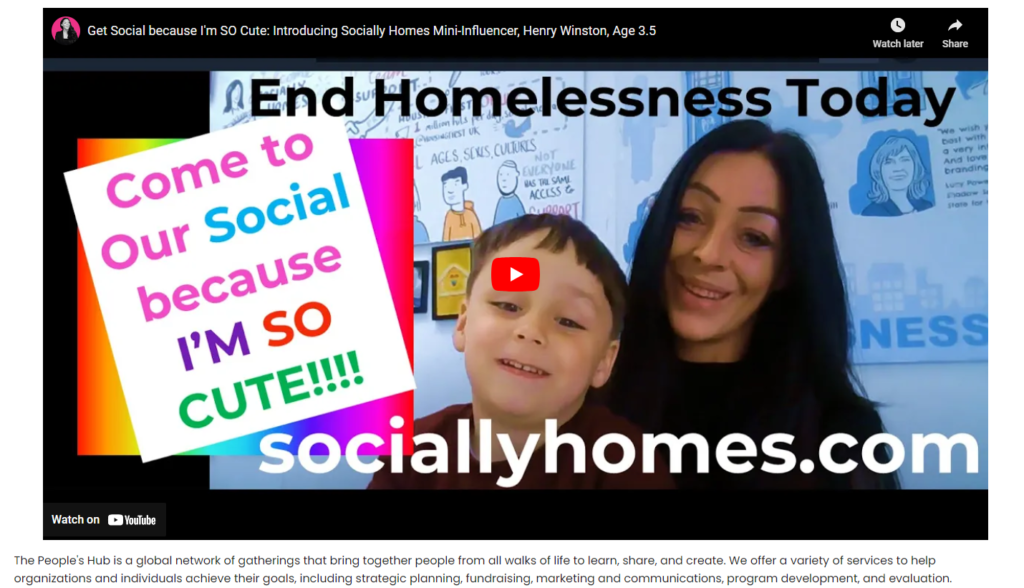‘Challenge Poverty Week’ always gets me thinking. What is it that keeps people bound by circumstances, and what is it that sets people free? No child in the history of mankind chose poverty. Some children have an anchor, a passion that sets them free and some have dig deeper to out work the circumstances handed to them at birth.

This is more than political ideology. The fabrics of poverty run way deeper than studies report, and will take more than one off sporadic payments to mend the tapestry of the families affected by poverty.
Let’s talk about skills/passion. Do you pursue the passion, or does the passion pursue you?
Take Fatima Whitbread for example, a tragic start in life, one that could have led to a lifetime of adversity. What would her life have been had she not found her anchor in sport; was it her gift that set her free or was it determination to fight against the hand she was dealt that changed the trajectory of her life.
After attending he the local athletic club, it was her coach who fostered her and offered her a new life. A life Fatima feels extremely grateful for, one she explains solidified her understanding of love and the power of support.
What about the young who either don’t have an obvious gift and even if they do there is no-one there to notice or nurture it, where do they go?
Challenge Poverty: Do they become a lost in the system another statistic?
'A 2013 study links school exclusion to prison
Pupils excluded from school at 12 are four times as likely as other children to be jailed as adults, a new study shows.
Researchers found that boys, children living in single parent families, and those from the poorest communities were most likely to be barred from school.
They also concluded that equally badly behaved pupils from more affluent areas and those from two parent families were accorded greater tolerance and, as a consequence, were far less likely to be expelled.
"The study findings show that one of the keys to tackling Scotland’s high imprisonment rates is to tackle school exclusion. If we could find more imaginative ways of retaining the most challenging children in mainstream education and ensuring that school is a positive experience for all Scotland’s young people, this would be a major step forward. (Professor Susan McVie. Co-director of the study)
Five times as likely to end up in jail
The study compared the outcomes of children who had been referred to the hearing system by 12 with a closely matched group of young people involved in equally serious levels of offending who had not been referred.
Researchers found that those who had been referred were around five times more likely to end up in prison by age 24.
Groomed for imprisonment
The Edinburgh Study of Youth Transitions and Crime, conducted by the University of Edinburgh, tracked more than 4000 people who started secondary school in 1998.
It concludes that early intervention in the lives of children identified as presenting “the greatest risk” does not necessarily reduce offending, but may well groom young people for later imprisonment.
Researchers found that the criminal justice system “constructs, reproduces and recycles its client base”.
"In practice, the criminal justice system serves to punish poverty, the socially marginalised, and vulnerable individuals, as much as those who steal, assault or murder. For youngsters who come to the attention of formal agencies at an early age, we need to ensure that intervention does not label and stigmatise." (Professor Lesley McAra, Head of the University’s School of Law and co-director of the study)'
What can we do as society to challenge poverty?
We can pay attention to young people; we can offer opportunities to engage. We could be creative in our approach and offer well being sessions, art, reading, writing, history, sport. We can provide after school clubs, harness the skills of our community development workers, and follow their lead. We can pay attention to the children who can only find the courage to whisper, we can make the extra effort to notice the whispers as well as the noise.
If we open community hubs and open our doors to the local community to challenge poverty. Teach financial skills and how to manage money. Advise about credit unions in their local community. We can offer peer mentor sessions. We can bring in motivational speakers who have walked 100 miles in the shoes of these people. Helping them to alleviate the shame and strive for more.
We can link in with our criminal justice system and catch people before they fall. This has to be done in such a way that leaves no one on the side-lines, this approach must include not only those at risk of offending, but those at risk of being abused.
We can have counsellors in every school, from primary age, see children young, before they enter teens and often for many the pattern of behaviour has become unmanageable.
Prevention before intervention.
Every child born is a gift and we must treat them as such.
We can at the very least do no more harm.
"There is no power for change greater than a community discovering what it cares about."
Margaret J

